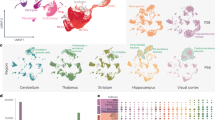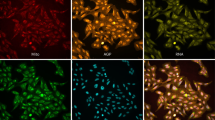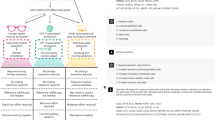Abstract
Emerging methods for the accurate quantification of gene expression in individual cells hold promise for revealing the extent, function and origins of cell-to-cell variability. Different high-throughput methods for single-cell RNA-seq have been introduced that vary in coverage, sensitivity and multiplexing ability. We recently introduced Smart-seq for transcriptome analysis from single cells, and we subsequently optimized the method for improved sensitivity, accuracy and full-length coverage across transcripts. Here we present a detailed protocol for Smart-seq2 that allows the generation of full-length cDNA and sequencing libraries by using standard reagents. The entire protocol takes ∼2 d from cell picking to having a final library ready for sequencing; sequencing will require an additional 1–3 d depending on the strategy and sequencer. The current limitations are the lack of strand specificity and the inability to detect nonpolyadenylated (polyA−) RNA.
This is a preview of subscription content, access via your institution
Access options
Subscribe to this journal
Receive 12 print issues and online access
$259.00 per year
only $21.58 per issue
Buy this article
- Purchase on Springer Link
- Instant access to full article PDF
Prices may be subject to local taxes which are calculated during checkout



Similar content being viewed by others
References
Wilkinson, D.J. Stochastic modelling for quantitative description of heterogeneous biological systems. Nat. Rev. Genet. 10, 122–133 (2009).
Wilhelm, B.T. et al. Dynamic repertoire of a eukaryotic transcriptome surveyed at single-nucleotide resolution. Nature 453, 1239–1243 (2008).
Wang, E.T. et al. Alternative isoform regulation in human tissue transcriptomes. Nature 456, 470–476 (2008).
Mortazavi, A., Williams, B.A., McCue, K., Schaeffer, L. & Wold, B. Mapping and quantifying mammalian transcriptomes by RNA-seq. Nat. Methods 5, 621–628 (2008).
Tang, F. et al. mRNA-seq whole-transcriptome analysis of a single cell. Nat. Methods 6, 377–382 (2009).
Tang, F. et al. RNA-seq analysis to capture the transcriptome landscape of a single cell. Nat. Protoc. 5, 516–535 (2010).
Islam, S. et al. Characterization of the single-cell transcriptional landscape by highly multiplex RNA-seq. Genome Res. 21, 1160–1167 (2011).
Ramskold, D. et al. Full-length mRNA-seq from single-cell levels of RNA and individual circulating tumor cells. Nat. Biotechnol. 30, 777–782 (2012).
Hashimshony, T., Wagner, F., Sher, N. & Yanai, I. CEL-Seq: single-cell RNA-seq by multiplexed linear amplification. Cell Rep. 2, 666–673 (2012).
Islam, S. et al. Highly multiplexed and strand-specific single-cell RNA 5′ end sequencing. Nat. Protoc. 7, 813–828 (2012).
Sasagawa, Y. et al. Quartz-seq: a highly reproducible and sensitive single-cell RNA-seq reveals non-genetic gene expression heterogeneity. Genome Biol. 14, R31 (2013).
Picelli, S. et al. Smart-seq2 for sensitive full-length transcriptome profiling in single cells. Nat. Methods 10, 1096–1098 (2013).
Yan, L. et al. Single-cell RNA-seq profiling of human preimplantation embryos and embryonic stem cells. Nat. Struct. Mol. Biol. 20, 1131–1139 (2013).
Huang, L., Lee, J., Sitaraman, K. & Gallego, A. A new highly sensitive two-step RT-PCR system. Focus 22, 6–7 (2000).
Abbotts, J., Bebenek, K., Kunkel, T.A. & Wilson, S.H. Mechanism of HIV-1 reverse transcriptase. Termination of processive synthesis on a natural DNA template is influenced by the sequence of the template-primer stem. J. Biol. Chem. 268, 10312–10323 (1993).
Brooks, E.M., Sheflin, L.G. & Spaulding, S.W. Secondary structure in the 3′ UTR of EGF and the choice of reverse transcriptases affect the detection of message diversity by RT-PCR. Biotechniques 19, 806–812, 814–805 (1995).
Kuo, K.W., Leung, M.F. & Leung, W.C. Intrinsic secondary structure of human TNFR-I mRNA influences the determination of gene expression by RT-PCR. Mol. Cell Biochem. 177, 1–6 (1997).
Carninci, P. et al. Thermostabilization and thermoactivation of thermolabile enzymes by trehalose and its application for the synthesis of full length cDNA. Proc. Natl. Acad. Sci. USA 95, 520–524 (1998).
Spiess, A.N. & Ivell, R. A highly efficient method for long-chain cDNA synthesis using trehalose and betaine. Anal. Biochem. 301, 168–174 (2002).
Pinto, F.L. & Lindblad, P. A guide for in-house design of template-switch-based 5′ rapid amplification of cDNA ends systems. Anal. Biochem. 397, 227–232 (2010).
Santoro, M.M., Liu, Y., Khan, S.M., Hou, L.X. & Bolen, D.W. Increased thermal stability of proteins in the presence of naturally occurring osmolytes. Biochemistry 31, 5278–5283 (1992).
Rajendrakumar, C.S., Suryanarayana, T. & Reddy, A.R. DNA helix destabilization by proline and betaine: possible role in the salinity tolerance process. FEBS Lett. 410, 201–205 (1997).
Rees, W.A., Yager, T.D., Korte, J. & von Hippel, P.H. Betaine can eliminate the base pair composition dependence of DNA melting. Biochemistry 32, 137–144 (1993).
Lambert, D. & Draper, D.E. Effects of osmolytes on RNA secondary and tertiary structure stabilities and RNA-Mg2+ interactions. J. Mol. Biol. 370, 993–1005 (2007).
Eckert, K.A. & Kunkel, T.A. High fidelity DNA synthesis by the Thermus aquaticus DNA polymerase. Nucleic Acids Res. 18, 3739–3744 (1990).
Zhu, Y.Y., Machleder, E.M., Chenchik, A., Li, R. & Siebert, P.D. Reverse transcriptase template switching: a SMART approach for full-length cDNA library construction. Biotechniques 30, 892–897 (2001).
Petersen, M. & Wengel, J. LNA: a versatile tool for therapeutics and genomics. Trends Biotechnol. 21, 74–81 (2003).
Quail, M.A. et al. Optimal enzymes for amplifying sequencing libraries. Nat. Methods 9, 10–11 (2012).
Adey, A. et al. Rapid, low-input, low-bias construction of shotgun fragment libraries by high-density in vitro transposition. Genome Biol. 11, R119 (2010).
Navin, N. et al. Inferring tumor progression from genomic heterogeneity. Genome Res. 20, 68–80 (2010).
Torres, L. et al. Intratumor genomic heterogeneity in breast cancer with clonal divergence between primary carcinomas and lymph node metastases. Breast Cancer Res. Treat 102, 143–155 (2007).
Shipitsin, M. et al. Molecular definition of breast tumor heterogeneity. Cancer Cell 11, 259–273 (2007).
Navin, N. & Hicks, J. Future medical applications of single-cell sequencing in cancer. Genome Med. 3, 31 (2011).
Xu, X. et al. Single-cell exome sequencing reveals single-nucleotide mutation characteristics of a kidney tumor. Cell 148, 886–895 (2012).
Hou, Y. et al. Single-cell exome sequencing and monoclonal evolution of a JAK2-negative myeloproliferative neoplasm. Cell 148, 873–885 (2012).
Trapnell, C. et al. Differential gene and transcript expression analysis of RNA-seq experiments with TopHat and Cufflinks. Nat. Protoc. 7, 562–578 (2012).
Acknowledgements
This work was supported by the European Research Council Starting grant no. 243066 (R.S.), the Swedish Foundation for Strategic Research FFL4 (R.S.), the Åke Wiberg Foundation (R.S.) and the Swedish Research Council grant nos. 2008-4562 (R.S.) and 2010-6844 (Å.K.B.).
Author information
Authors and Affiliations
Contributions
S.P. developed and wrote the protocol; O.R.F. conceived and designed LNA-based oligos; Å.K.B. performed computational analyses; S.S. picked cells; G.W. contributed to protocol development; R.S. designed the study and wrote the manuscript.
Corresponding author
Ethics declarations
Competing interests
Ludwig Institute for Cancer Research has submitted a US patent application on the LNA-based template switching.
Supplementary information
Supplementary Table 1
Read statistics for Smart-seq2 single-cell transcriptome libraries from HEK293T and DG-75 cells. (XLSX 51 kb)
Rights and permissions
About this article
Cite this article
Picelli, S., Faridani, O., Björklund, Å. et al. Full-length RNA-seq from single cells using Smart-seq2. Nat Protoc 9, 171–181 (2014). https://doi.org/10.1038/nprot.2014.006
Published:
Issue Date:
DOI: https://doi.org/10.1038/nprot.2014.006
This article is cited by
-
Heterogeneity in maternal mRNAs within clutches of eggs in response to thermal stress during the embryonic stage
BMC Ecology and Evolution (2024)
-
DNA methylation restricts coordinated germline and neural fates in embryonic stem cell differentiation
Nature Structural & Molecular Biology (2024)
-
Non-invasive modulation of meningeal lymphatics ameliorates ageing and Alzheimer’s disease-associated pathology and cognition in mice
Nature Communications (2024)
-
Lineage regulators TFAP2C and NR5A2 function as bipotency activators in totipotent embryos
Nature Structural & Molecular Biology (2024)
-
Targeting metabolic sensing switch GPR84 on macrophages for cancer immunotherapy
Cancer Immunology, Immunotherapy (2024)
Comments
By submitting a comment you agree to abide by our Terms and Community Guidelines. If you find something abusive or that does not comply with our terms or guidelines please flag it as inappropriate.



